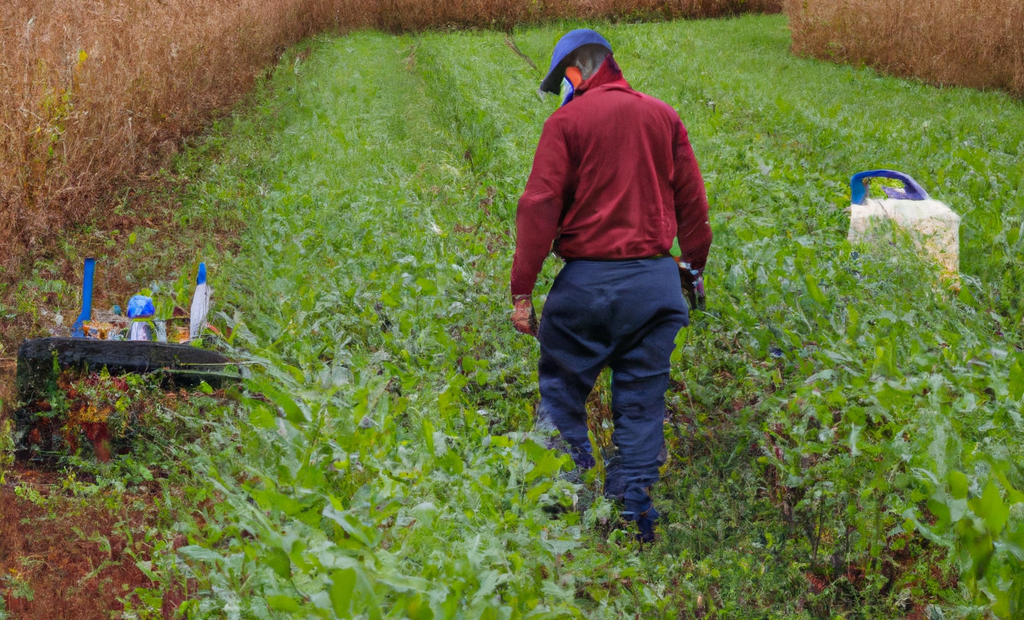The article highlights the crucial role of fertilizers and biofertilizers in agriculture to improve crop resistance to diseases and promote soil health. Biofertilizers, essential in organic farming, provide beneficial microorganisms to the soil, promoting more sustainable agriculture. Farmers need to understand and properly use these products to maximize crop health and ensure long-term food production.
In a world where food demand is constantly increasing, crop resilience to disease has become a primary issue for farmers and the scientific community. This article will talk about the various techniques that can help increase the resistance of crops to diseases, thereby improving their productivity and ensuring food security. We will explore the use of fertilizers and biofertilizers, the adoption of organic farming, and how certain agricultural products can strengthen the health of crops. We will also discuss the incorporation of biofertilizers in agriculture as an effective solution to combat crop diseases. With the help of these strategies, farmers can farm more efficiently while protecting the environment.
- 1. "The Use of Fertilizers and Biofertilizers to Improve the Resilience of Crops"
- 2. "Organic Farming: A Solution to Increase Crop Resistance to Disease"
- 3. "Agricultural Products that Help Strengthen Crop Health"
- 4. "Incorporation of Biofertilizers in Agriculture to Combat Crop Diseases"
1. "The Use of Fertilizers and Biofertilizers to Improve the Resilience of Crops"
In agriculture, the use of fertilizers and biofertilizers plays a crucial role in improving the resilience of crops to diseases. Fertilizers provide the plant with the essential nutrients it needs to grow strong and resistant. On the other hand, biofertilizers, which are a more ecological option, provide beneficial microorganisms to the soil that can improve the health of the crop and its ability to resist diseases. These agricultural products, which are part of the organic farming strategy, help maintain a healthy balance in the soil, thus strengthening the overall resilience of the crop. It is essential that farmers understand the benefits and correct use of these fertilizers and biofertilizers to maximize the health and resistance of their crops.
2. "Organic Farming: A Solution to Increase Crop Resistance to Disease"
Organic farming is presented as a solid solution to increase the resistance of crops to diseases. Through the use of biofertilizers, which are agricultural products rich in nutrients and beneficial microorganisms, it is possible to strengthen the natural defenses of plants. These organic fertilizers, unlike chemical ones, help improve soil health, which in turn increases the resilience of crops to diseases. Organic farming also promotes biodiversity, which can help keep pathogens at bay and reduce the risk of disease outbreaks. Therefore, the transition to organic farming can be an effective strategy to protect crops and ensure long-term food production.
3. "Agricultural Products that Help Strengthen Crop Health"
There are several agricultural products that can be used to strengthen the health of crops and improve their resistance to diseases. Among them, fertilizers and biofertilizers play an essential role. Fertilizers provide crops with the essential nutrients they need to grow strong and healthy. Biofertilizers, on the other hand, are organic farming products that use living organisms to enrich the soil with beneficial nutrients. These products not only boost crop health, but also improve soil quality, which in the long term can increase crop resistance to disease. By using these agricultural products, farmers can take a more sustainable and eco-friendly approach to protecting their crops from disease.
4. "Incorporation of Biofertilizers in Agriculture to Combat Crop Diseases"
The incorporation of biofertilizers in agriculture is an effective strategy to combat crop diseases and increase their resilience. Biofertilizers are agricultural products rich in beneficial microorganisms that improve plant nutrition, stimulate their growth and help prevent diseases. Unlike traditional chemical fertilizers, biofertilizers are an organic farming option as they are safe for the environment and promote soil health. Additionally, its continued use can improve soil structure and fertility, resulting in healthier, disease-resistant crops. In summary, biofertilizers represent a sustainable and effective solution to increase the resilience of crops against diseases.
Increasing the resilience of crops to diseases is a major challenge in modern agriculture, but various techniques and strategies can help overcome this challenge. Fertilizers and biofertilizers play a crucial role in improving the strength and resistance of crops, as they provide plants with the necessary nutrients to grow and develop healthily. Furthermore, organic farming is presented as a viable and sustainable solution to increase the resistance of crops to diseases, as it focuses on the use of natural resources and avoids the use of harmful chemicals.
The use of specific products for agriculture can also contribute significantly to strengthening the health of crops and, therefore, increasing their resilience to diseases. The incorporation of biofertilizers in agriculture has proven to be particularly effective in combating crop diseases. These products not only improve crop health and yield, but also contribute to the sustainability of agriculture by reducing dependence on chemical fertilizers.
In conclusion, the use of fertilizers, the adoption of organic farming, the choice of specific products for agriculture and the incorporation of biofertilizers are efficient and sustainable techniques to increase the resilience of crops to diseases. As we move forward, it is crucial to continue researching and applying these techniques to ensure the health of our crops and the sustainability of our food system.


